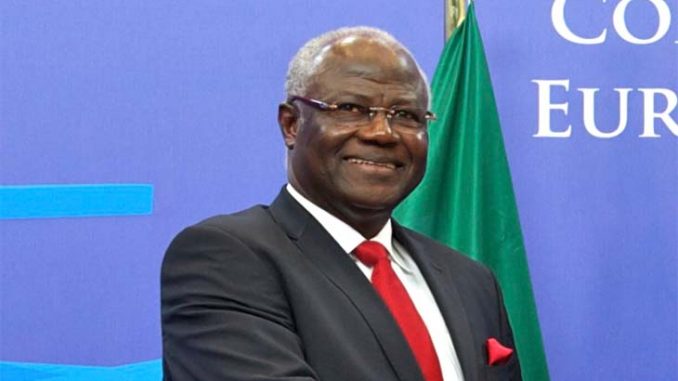By Amin Kef Sesay
Women’s Equality and Empowerment has been the leading topic in the news this week with the hosting of a high level international conference in the country on the issue by the Ministry of Basic Education, local and international partners, including UNICEF.
It is a fact that since time immemorial, Sierra Leonean women have been at risk for sexual and gender-based violence in the form of domestic violence, sexual assault of adults and minors, marital rape, school-related sexual abuse and harmful traditional practices like female genital mutilation.
Former President Koroma’s Government brought the issue sharply to the fore by engaging a broad range of stakeholders to identify the various drivers of sexual and gender-based violence across different segments of the population around the country in developing and piloting interventions designed to reduce its prevalence while maintaining cultural and social integrity.
Census shows that women account for 52 percent of the total population in Sierra Leone yet occupy less than 20 percent of elected positions. However, their voice, visibility, participation, and representation in elective and appointment positions remain very low compared to men.
Some of these challenges include lack of economic independence, high illiteracy and entrenched customs and traditions, political violence and reprisals, the absence of progressive laws that protect and promote participation for women, and the lack of confidence to vie for public positions.
Gender equality and gender empowerment which prevents violence against women and girls is essential for economic prosperity.
Empirical evidence shows that societies that value women and men as equal are safer and healthier. Gender equality is a human right. Thus, the Government of Sierra Leone under the leadership of then President, Dr. Ernest Bai Koroma was committed to the achievement of gender equality and women’s empowerment in Sierra Leone.
Since that time, the Government and people of Sierra Leone continue to make steady progress in the advancement of women and girls as highlighted in the 12 critical areas of the Beijing Declaration and Platform for Action and other international and regional human rights instruments including CEDAW.
Government has demonstrated such commitments through the development of policies, plans and promulgation of legislations for the protection, welfare and advancement of women and girls in Sierra Leone.
Starting in 2000, the Ministry developed the twin policies namely: National Policy on the Advancement of Women and the National Gender Mainstreaming Policy. As a way of commitment of the advancement of women as well, the Government of Sierra Leone signed and ratified the Convention on the Elimination of All Forms of Discrimination Against Women (CEDAW) on the 21st September and 11th November 1988 respectively.
In 2007, a landmark legislation of the “Gender Justice Laws” namely: Domestic Violence Act; Registration of Customary Marriage and Divorce Act; Devolution of Estates Act and the Sexual Offences Act 2012. To support the full implementation of these legislations, the Government developed national action plans including the National Gender Strategic Plan (2010-2013); the new Ministry of Social Welfare, Gender and Children’s Affairs Strategic Plan (2013-2018), Sierra Leone National Action on UNSCR 1325 and 1820 (2010-2014); National Action Plan on GBV (2012) and National Referral Protocol on GBV (2012) – among others.
Under Ernest, Government developed and officially launched the Agenda for Prosperity using two prong approaches: mainstreaming gender and in the entire document whilst having Gender Equality and Women’s Empowerment pillar.
The Gender Equality and Women’s Empowerment Pillar had four main clusters including governance, violence against women and girls, education and economic empowerment of women for which the government of Sierra Leone was widely acclaimed for such a remarkable approach and the model is been discussed as the best practice for the post 2015 agenda and the SDGs.
The Government of Sierra Leone under the leadership of President Bio, mindful of its commitment to the Beijing Declaration and Platform for Action, continues to take concrete steps in addressing the various critical areas of concern.
In which direction, Vice President Dr. Mohamed Juldeh Jalloh, in his keynote address on Wednesday 18th May, 2022 in welcoming distinguished guests from various countries highlighted the progress the country has made to support girls’ education through Transformative policies to ensure Gender Equality in and Through Education.
He maintained that education must be the centrepiece of any Government’s investment in its people in addressing barriers to equality adding that no society can grow where the population is plagued by gender barriers.




